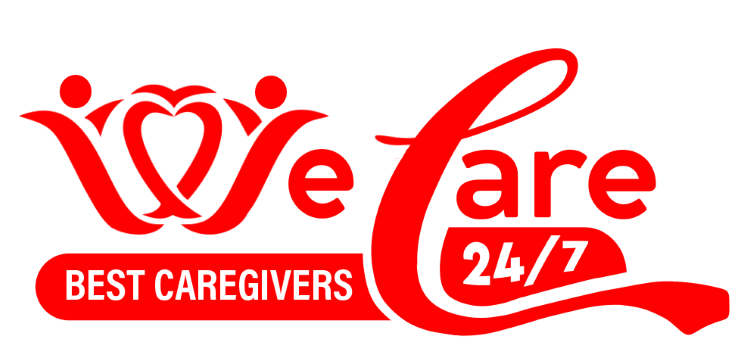Navigating NJ Healthcare: 8 Top Senior Provider Profiles

Your Guide to Senior Care Options in the Garden State
As individuals age, or when faced with a new health challenge, the landscape of healthcare options can seem complex. For New Jersey seniors, their adult children, and caregivers, understanding available resources is paramount to ensuring optimal well-being and quality of life. This guide illuminates eight key types of senior healthcare providers and support services prominent in New Jersey, offering clarity to help you make informed decisions for yourself or your loved ones.
The goal is to demystify the choices, providing a comprehensive overview of who these providers are, what services they offer, and how they can integrate into a holistic care plan. From independent living to specialized medical attention, New Jersey offers a spectrum of solutions tailored to diverse needs.
1. In-Home Care Agencies: Comfort and Convenience at Home
In-home care agencies, such as WeCare Home Caregivers, provide a wide range of services directly within a senior’s residence. This option allows individuals to maintain independence and familiarity within their own environment. Services typically include assistance with activities of daily living (ADLs) like bathing, dressing, meal preparation, medication reminders, light housekeeping, and companionship.
This profile is ideal for seniors who prefer to age in place, or those recovering from surgery, illness, or managing chronic conditions. In New Jersey, many families find in-home care a flexible and personalized alternative to institutional settings, offering a continuum of support that adapts as needs evolve. It can also provide much-needed respite for family caregivers.
2. Assisted Living Facilities: Community and Support
Assisted living facilities offer a blend of independent living with readily available support services. Residents typically have their own apartments but receive assistance with ADLs, medication management, and access to communal dining, social activities, and transportation. These communities prioritize maintaining resident autonomy while ensuring safety and assistance are always within reach.
For seniors in New Jersey seeking a vibrant community environment combined with a degree of personal care, assisted living facilities present a compelling option. They are suited for individuals who may no longer manage all aspects of independent living but do not require the intensive medical care provided by a nursing home. Finding the right fit involves considering location, amenities, and care levels.
3. Skilled Nursing Facilities (Nursing Homes): Comprehensive Medical Care
Skilled nursing facilities, commonly known as nursing homes, provide round-the-clock medical care, rehabilitation services, and assistance for individuals with significant health needs or those recovering from severe illness or injury. These facilities are staffed by licensed nurses, therapists, and medical professionals who manage complex medical conditions, administer medications, and offer comprehensive rehabilitative therapies.
In New Jersey, nursing homes serve seniors who require constant supervision, intensive therapy, or specialized medical procedures that cannot be safely provided in a home setting or an assisted living facility. They are often a choice for short-term rehabilitation following a hospital stay or for long-term care for individuals with advanced chronic illnesses or cognitive impairments. Resources like the New Jersey Department of Health provide information on licensed facilities.
4. Adult Day Care Centers: Daytime Engagement and Respite
Adult day care centers offer supervised programs and activities during daytime hours for seniors who need supervision or social engagement. These centers provide a safe, structured environment, often including meals, recreational activities, and personal care assistance. They serve as an important resource for family caregivers, offering respite and enabling them to work or attend to personal responsibilities knowing their loved one is in good hands.
New Jersey families find adult day care centers beneficial for seniors experiencing social isolation, early-stage dementia, or those needing assistance during the day while their primary caregiver is unavailable. They foster social interaction, mental stimulation, and a sense of purpose. Many centers also offer specialized programs for individuals with memory impairments.
5. Geriatricians and Specialized Medical Practices: Expert Medical Oversight
Geriatricians are medical doctors who specialize in the healthcare of elderly people. They possess expertise in managing complex, multiple chronic conditions common in older adults, understanding unique drug interactions, and addressing age-related health challenges. Their focus extends beyond physical health to include mental health, functional ability, and social well-being.
Consulting a geriatrician in New Jersey can be immensely valuable for seniors with intricate medical needs or those navigating numerous health issues. They provide comprehensive assessments, coordinate care among multiple specialists, and offer a holistic approach to senior health. Finding a board-certified geriatrician is a proactive step for optimal long-term health management. Your primary care physician may offer a referral.
6. Hospice Care: Comfort and Dignity in Final Stages
Hospice care focuses on providing comfort, dignity, and support to individuals with a life-limiting illness and their families. The emphasis is on pain and symptom management, emotional support, and spiritual care, rather than curative treatments. Care can be provided in the patient’s home, in a dedicated hospice facility, or within a hospital or nursing home setting.
For New Jersey seniors nearing the end of life, hospice offers a compassionate approach that prioritizes quality of life and respect for individual wishes. It also extends support to family members, including bereavement services. This form of care ensures that individuals can live their final days with peace and minimal discomfort, surrounded by loved ones. The New Jersey Hospice and Palliative Care Organization is a helpful resource.
7. Palliative Care: Alleviating Symptoms at Any Stage
Palliative care provides specialized medical care for people living with serious illnesses, regardless of their prognosis or stage of disease. Its objective is to provide relief from the symptoms and stress of a serious illness, aiming to improve quality of life for both the patient and their family. Unlike hospice, palliative care can be offered alongside curative treatments.
Seniors in New Jersey grappling with conditions like heart failure, cancer, or Parkinson’s disease can benefit significantly from palliative care. This specialized support focuses on managing pain, nausea, fatigue, and other distressing symptoms, allowing individuals to maintain a better quality of life while pursuing necessary treatments. It is often provided by a team of doctors, nurses, and other specialists.
8. Respite Care: Essential Support for Family Caregivers
Respite care provides temporary relief for primary family caregivers, allowing them to take a break from their caregiving responsibilities. This temporary care can be provided in various settings, including the senior’s home (through in-home care agencies), an assisted living facility, an adult day care center, or a nursing home for a short-term stay. It offers caregivers an opportunity to rest, attend appointments, or simply recharge.
For the many dedicated family caregivers across New Jersey, respite care is a vital service that helps prevent burnout and sustain their ability to provide long-term care. It ensures that the senior continues to receive attentive care while their primary caregiver takes a necessary pause. Organizations like the New Jersey Division of Aging Services often have information on respite programs and resources.
Choosing the Right Fit for Your New Jersey Senior
Navigating these provider profiles involves careful consideration of the senior’s current health status, long-term needs, preferences, and financial situation. It is beneficial to involve the senior in the decision-making process whenever possible, respecting their autonomy and wishes.
Start by assessing daily living needs and the level of medical supervision required. Consider the social and emotional well-being of the senior, seeking environments or services that will promote engagement and happiness. Research the reputation of providers, read reviews, and ask for references. Many New Jersey agencies offer initial consultations to discuss individual circumstances.
How WeCare Home Caregivers Can Help
At WeCare Home Caregivers, we understand the complexities of finding the right support. While we specialize in providing compassionate, professional in-home care, we also serve as a resource for families exploring the broader spectrum of senior services in New Jersey. Our team can help you understand how in-home care integrates with other provider profiles, whether it’s assisting with transitions from a hospital, supporting a senior attending adult day care, or complementing palliative care at home.
We are dedicated to empowering New Jersey families with the knowledge and services needed to make informed decisions for senior loved ones. Our commitment extends to providing high-quality care that respects independence and enhances daily life. Contact us today to discuss your unique needs and how we can be part of your comprehensive care solution.



